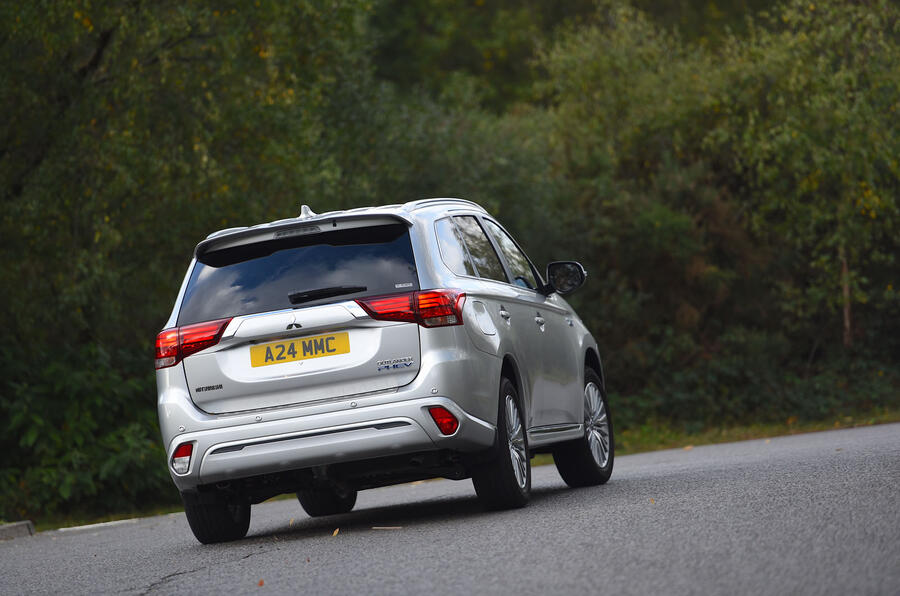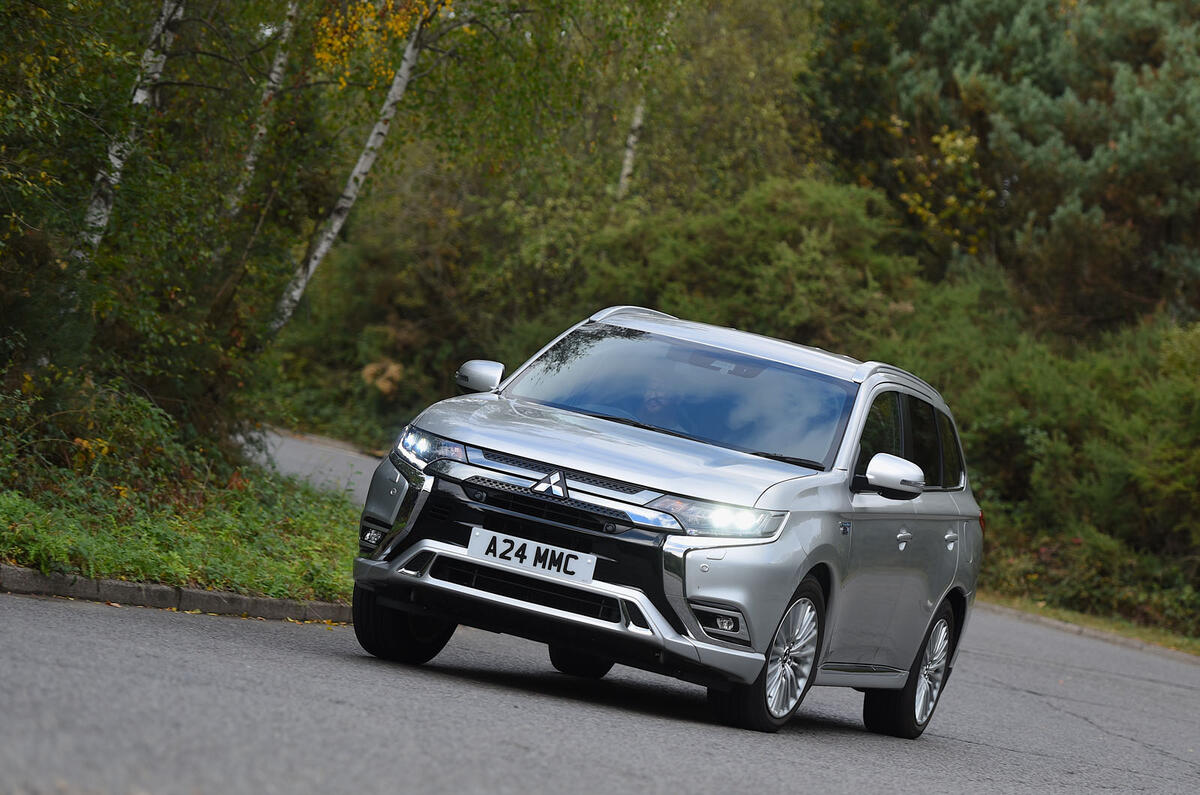Mitsubishi is leading calls for the UK government to revive its axed financial incentive scheme for buyers of plug-in hybrid vehicles.
The Japanese car maker says that UK owners of its Outlander PHEV hybrid SUV cover half their average weekly mileage in electric mode, substantially lessening the model’s environmental impact.
The grant in question, axed in October last year, enhanced the appeal of hybrid vehicles by offering buyers a £2500 - £4500 subsidy depending on the model’s zero-emissions range.
According to a survey commissioned by Mitsubishi but conducted independently, over two thirds of Outlander PHEV owners charge their vehicle daily, with 90% charging at least 2-3 times per week.

Mitsubishi says the results of this survey oppose the notion that PHEVs are rarely plugged in, and are purchased as a means of paying reduced benefit-in-kind tax.
The vast majority of Outlander PHEVs are charged at owners’ homes, with only 23% of drivers relying on public charge points, which Mitsubishi says “refutes the misconception that PHEVs are preventing electric vehicles from accessing charging units”.
Mitsubishi says 25% of UK Outlander PHEV owners would consider a pure electric vehicle as their next purchase – implying that incentivising sales of hybrids could help the government in its mission to end the sale of conventionally fuelled vehicles by 2040.
The company’s appeal comes days after it was revealed that UK sales of plug-in hybrids fell by 34.3% in April – a direct result of the government’s abolition of financial incentives for anything but pure-electric vehicles.
The Outlander PHEV is the UK’s biggest-selling plug-in hybrid, with an estimated 45,000 currently on the road.
Read more
Mitsubishi Outlander PHEV review
Mitsubishi 'extremely disappointed' by end of government plug-in car grants
New car sales fall in April, plug-in hybrids hardest hit​








Join the debate
Add your comment
No
Leave it to the market
this perfectly illustrates why subsidies never really work. In this case it is those who least need the subsidy who benefit and goes to show most PHEV and EV buyers are actually more interested in their wallet and bank account than the environment. Schadenfreude....
adrian888 wrote:
Of course subsidies work. If you want people to do something you make it cheaper; they get used to doing it and then you can drop the subsidy. Especially if it is expensive new tech. Originally the Diesel Outlander and the PHEV were the same price spec for spec, which meant that everyone bought the PHEV. Now the PHEV is more expensive they are selling less and Mitsubishi is consequently squeeling.
The government has removed the subsidy too fast. It hasn't done its job and moved the market yet. In my example above I showed how short sighted this is - HMRC has lost out on a big chunk of VAT and BIK income tax and there won't be a nice second hand PHEV tempting second hand buyers on the used car market in three-years time.
Looks like everyone looses. Foolish.
Subsidy encourages spending and can actually increase revenue.
Soren Lorenson wrote:
I totally agree that if you want change you have to bring it on and subsidies help with this, but I also have to criticise the lack of subsidy for low polluting small cars, after all a city car that would probably suit a lot of people is taxed at the same rate as a higher polluting x-over, same with self charging hybrids, this to me makes no sense as surely it would be preferable for new car buyers to be buying the lowest polluting and therefore most econmical car they can afford. This would, as you say, supply more low polluting cars to the second hand market.
BIK, VAT and more Government Stupidity
Actually I think it's the BIK rates that have really done for the PHEV. A couple of years back they were at 5%. I was just about to sign a lease for my small business and then the rate went up to 13% and the maths no longer worked, so I bought a second hand diesel privately.
If Government want people to switch to hybrid and electric they have to make it financially viable. They also need a good pool of 3 year old models, which incentivising company car drivers achieves.
Lastly, the grant isn't really a cost to the government. It's just some of the VAT coming back, which is almost £7,000 on a £40,000 car. If people make decisions like I did, that's a loss of £3,000 VAT and the BIK tax that they would have levied. Don't make hybrid's expensive and then moan about CO2 and air polution.
Not really very joined up thinking.
Soren Lorenson wrote:
I've done exactly the same, which is no good for the environment, the economy or the tax office. Well done HMRC!
Soren Lorenson wrote:
Worse still its 16% for this year 19/20, but it then bizarrely drops to 12% the year after (30-39 mile PHEV band) but a typical 4wd auto diesel SUV like a Tiguan will be at 37% so PHEV's are not dead yet.
I did consider having another but the spec's don't work out for me, even the top spec. Outlander is missing some things I Want and like most Japanese brands they don't do options so a bit of a deal breaker.